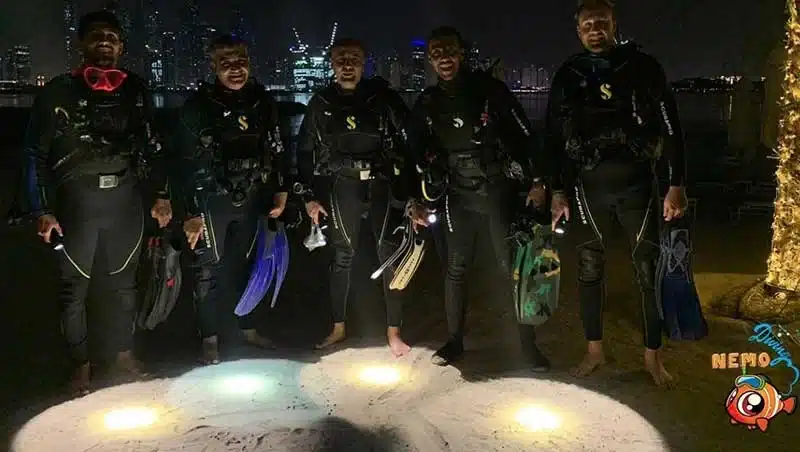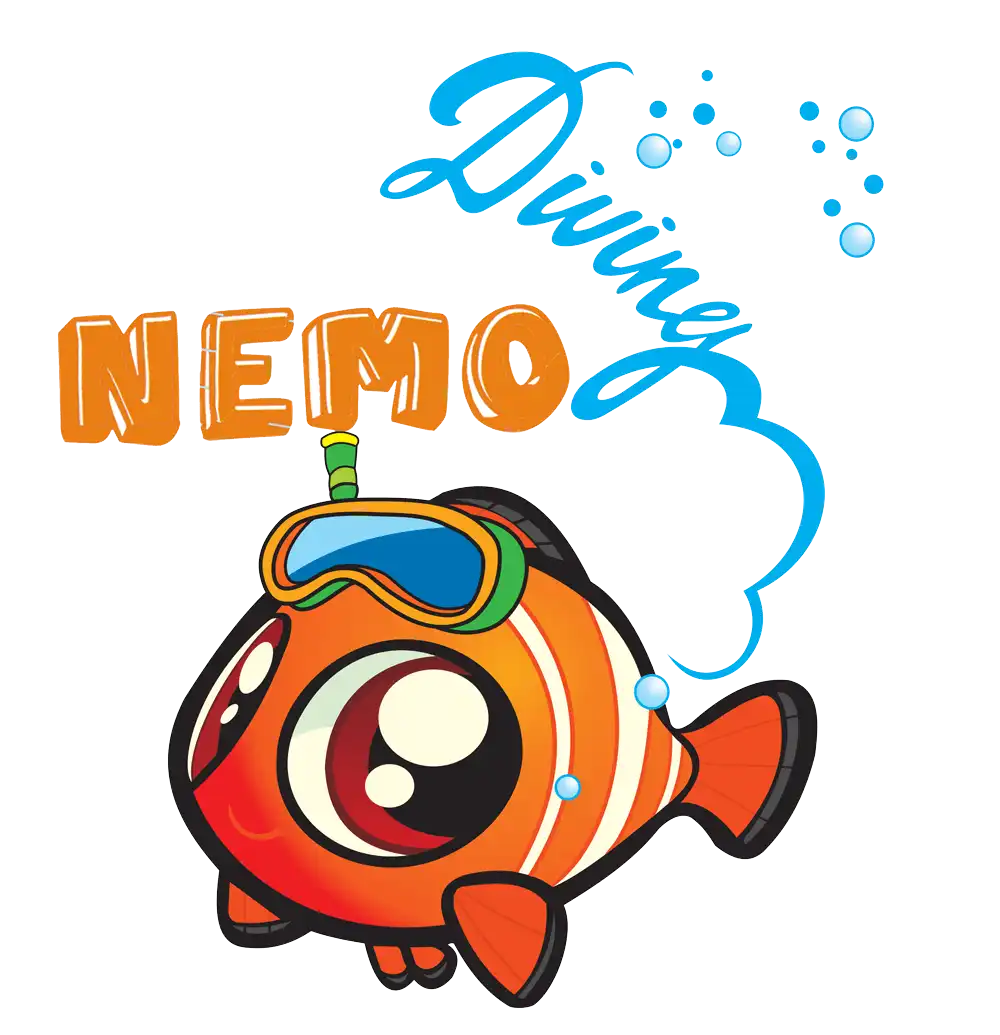
The marine geology is as beautiful and mysterious as the aquatic life that calls it home. This makes the incredible world that lies deep in the ocean worth exploring. Diving opens a whole new dimension that relaxes the senses. The sight of colorful marine life in various shapes and sizes is a real feast for the eyes. The ocean is the perfect escape if you’re yearning for a little peace and tranquility away from the stressors of day-to-day living.
If you think that diving during the day is an incredible experience, wait ‘til you try diving at night. The ocean is such a magical place that it’s like two different worlds rolled into one. You’ll be amazed at how the underwater world changes when the sun goes down and the darkness envelopes the water.
If you plan to go scuba diving UAE, you can join Nemo Diving Center’s scuba diving Fujairah Night Dive. Our trip begins with a sunset boat ride at 6:30 pm.

Think of the marine world as a big production play where the characters change from Act 1 to Act 2. Watch the marine creatures change from day to night when the curtain of darkness covers the aquatic environment.
The amazing thing about diving is that you can experience the beauty of both worlds. If you’re going night diving for the first time, it’s recommended that you choose a site that you have already explored during the day. This way you’ll see the magical reef transform from daylight to darkness.
When diving at night, the colors around you are revealed under the glow of your dive torch. This source of artificial light is what showcases the bright colors of the underwater world.
There are tiny plankton organisms that emit minuscule light flashes when set in motion. Try to cover your torch or flash flight for a moment then wave your arms around in the water. The movement disturbs the plankton which results in a chemical reaction called chemiluminescence or the emission of light. The blue specs in the veil of darkness almost resemble a glow stick in the water. Aside from plankton, there are also bioluminescent corals, jellyfish, and other deep-sea creatures.
While some animals retreat to their sleeping chambers when the day comes to an end, some emerge from their slumber at nightfall. Nocturnal predators go out to seek prey at night. Sharks have an advantage in low-light conditions because of their keen eyesight and sense of smell. They have a mirror-like membrane at the back of their eyes just like cats which gives sharks excellent night vision. In addition, sharks can detect their potential prey’s bioelectricity.
Eels are also magnificent nocturnal predators. They have a great sense of smell that helps them locate prey. Eels like to prey on small fish, crustaceans, and invertebrates.
Most species of octopus sleep during the day and become active at night. These intelligent predators are known as masters of camouflage. They have the natural gift to match the colors and even textures of their environment. Their knack for hiding in plain sight gives them the advantage to stalk and pounce on their prey. Octopus loves feeding on mollusks and crustaceans but they also have a taste for fish and snails. Camouflage is also their way of protecting themselves from their predators. When they feel threatened, they can escape with lightning speed by propelling and releasing a cloud of black ink.
Other cephalopods like squid and cuttlefish are also a treat to encounter during your night dive. They are famous for their rapid color changes using elastic pigment sacs called chromatophores. They escape predators by adjusting the pigment and iridescence of their skin. No wonder squid and cuttlefish have a reputation for being champions of camouflage.
Experiences
Find the perfect escape
© 2024 NEMO DIVING CENTER
Scuba diving is an exciting and adventurous water sport that offers a chance to explore the beauty of the underwater world and its amazing marine life. The UAE, particularly Dubai, is one of the most popular destinations for scuba diving, attracting divers from all over the world. With its crystal clear waters and diverse marine life, scuba diving in Dubai offers a unique and unforgettable experience.
The cost of scuba diving in Dubai varies depending on the dive center you choose and the type of dive you opt for. On average, a single dive can cost anywhere from AED 250 to AED 550, with the average price for a single dive being around AED 350. This price usually includes all the necessary equipment, such as the dive tank, regulator, and wetsuit, as well as the services of a professional dive guide. At Nemo Diving Center, We offer a wide range of diving packages to suit every budget and experience level.
Diving in Dubai is an incredible experience, and the UAE is home to many dive sites teeming with amazing marine life including colorful soft and hard corals, sea turtles, stingrays, manta rays, moray eels, cuttlefish, octopus, nudibranchs, seahorses, and a plethora of fish species. It is also noted for its incredible dive wrecks that have become rich artificial reefs. These dive sites offer a unique and exciting diving experience, providing a chance to explore sunken ships and other structures that have become havens for marine life.
Come and explore the unique underwater world of Palm Jumeriah in Dubai and incredible dive sites in Fujairah such as Dibba Rock, Sharm Rock, Martini Rock, Snoopy Island, and more. At Nemo Diving Center, we offer dive trips to these amazing dive sites, allowing divers to discover the incredible marine life that has made the wreck its home. We also offer a wide range of other dive sites to choose from, including shallow coral reefs, deep wrecks, and drift dives, providing something for every level of diver.
In conclusion, scuba diving in Dubai offers an unforgettable experience for all levels of diver. With its clear waters, diverse marine life, and incredible dive sites, Dubai is a must-visit destination for any scuba diver. Whether you’re a beginner or an experienced diver, our team at Nemo Diving Center will ensure that you have an amazing time exploring the beauty of the underwater world.
Click one of our contacts below to chat on WhatsApp
Social Chat is free, download and try it now here!
